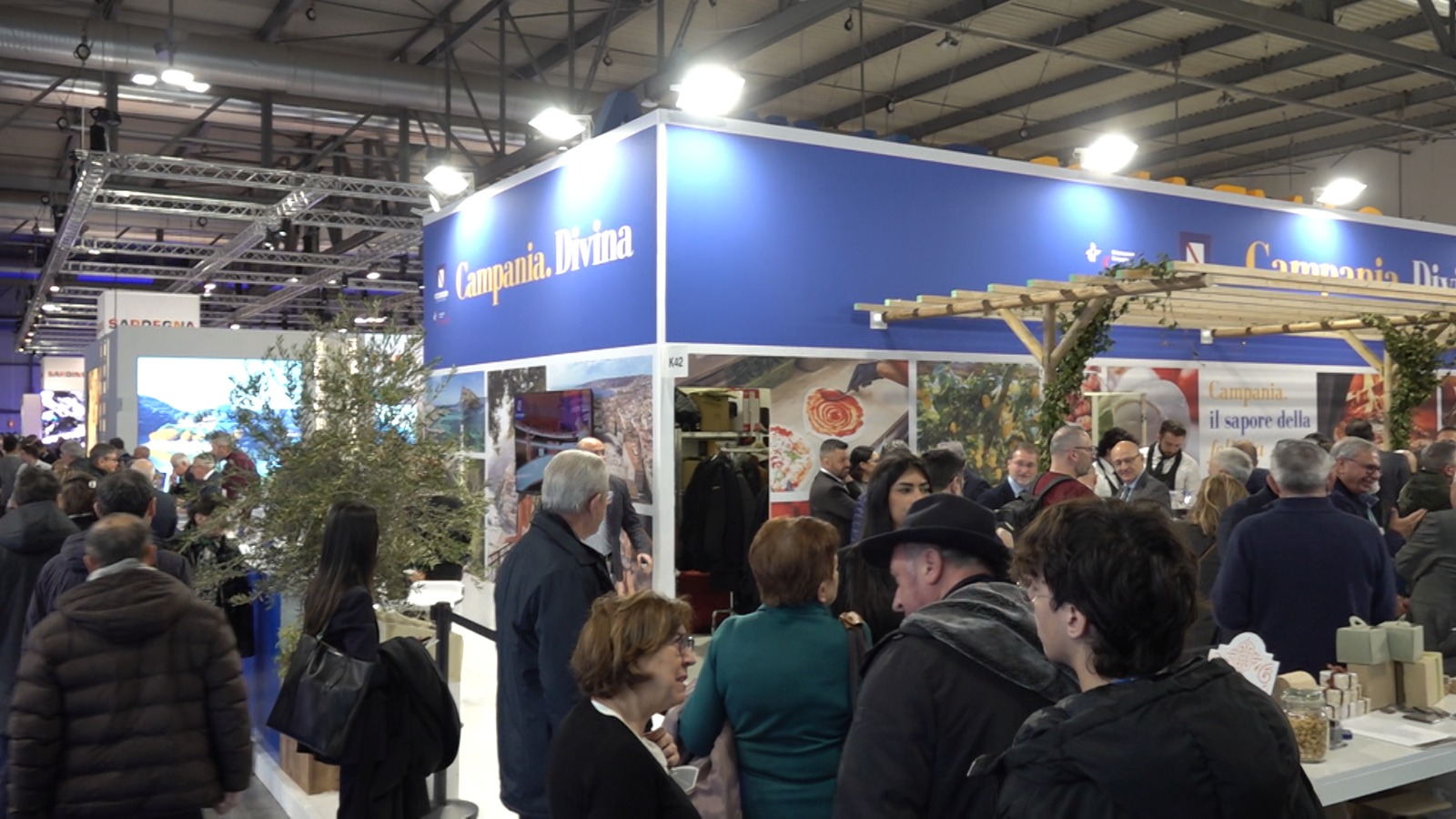Once again this year, the Campania Region, with its ‘Campania Divina’ stand, was present at the BIT Milano, one of the most important international events in the tourism sector.
During the three days, the Campania Region’s exhibition space, inaugurated by a conference attended by the President of the Region, Vincenzo De Luca, together with the Councillor for Tourism of Campania, Felice Casucci and Andrea Prete, President of Unioncamere and Chamber of Commerce of Salerno, hosted a dense programme of moments of in-depth analysis on the key themes of the Campania Region’s tourism programming for the year that has just begun: sustainable tourism – from marine protected areas to the villages, health and well-being programme – religious tourism – including spiritual paths and initiatives on the occasion of the Jubilee Year – artisanal tourism to enhance the excellence of Campania’s ‘know-how’, food and wine tourism with the presentation of the ‘Praesentia’ project, which tells the story of Campania’s identity through taste.
“2025 will also be the turning point with new IT detection platforms that will allow us to monitor more accurately and precisely the reality of our territory – said Rosanna Romano – Directorate-General for Cultural Policies and Tourism of the Campania Region – since 2018 we have been working on the first digital ecosystem for Culture. Today it is online, so tourists can visit our territory and prepare for the visit, but researchers, students and teachers can also access it if they are interested in consulting archival documents”.
The participation, promoted by the Department of Tourism – Directorate-General for Cultural Policies and Tourism, carried out in collaboration with the Campania Regional Tourism Agency and Unioncamere Campania, involved 40 cultural institutions and sites, 26 BtoB companies and 10 companies in the agri-food sector – selected by Unioncamere Campania – which offered their products for free tasting over the three days with a view to enhancing and promoting tourism and the regional agri-food sector.




